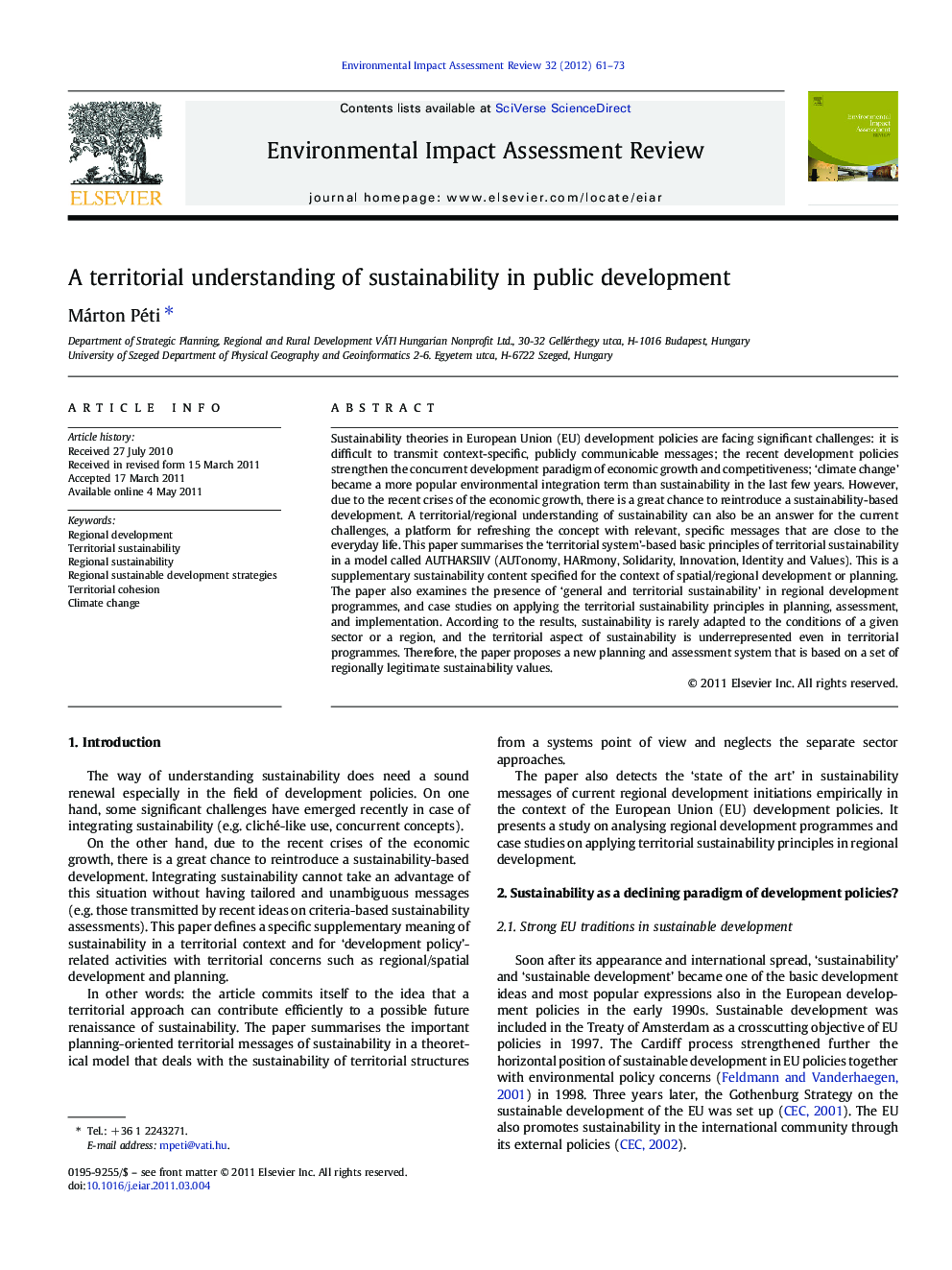| Article ID | Journal | Published Year | Pages | File Type |
|---|---|---|---|---|
| 1052939 | Environmental Impact Assessment Review | 2012 | 13 Pages |
Sustainability theories in European Union (EU) development policies are facing significant challenges: it is difficult to transmit context-specific, publicly communicable messages; the recent development policies strengthen the concurrent development paradigm of economic growth and competitiveness; ‘climate change’ became a more popular environmental integration term than sustainability in the last few years. However, due to the recent crises of the economic growth, there is a great chance to reintroduce a sustainability-based development. A territorial/regional understanding of sustainability can also be an answer for the current challenges, a platform for refreshing the concept with relevant, specific messages that are close to the everyday life. This paper summarises the ‘territorial system’-based basic principles of territorial sustainability in a model called AUTHARSIIV (AUTonomy, HARmony, Solidarity, Innovation, Identity and Values). This is a supplementary sustainability content specified for the context of spatial/regional development or planning. The paper also examines the presence of ‘general and territorial sustainability’ in regional development programmes, and case studies on applying the territorial sustainability principles in planning, assessment, and implementation. According to the results, sustainability is rarely adapted to the conditions of a given sector or a region, and the territorial aspect of sustainability is underrepresented even in territorial programmes. Therefore, the paper proposes a new planning and assessment system that is based on a set of regionally legitimate sustainability values.
